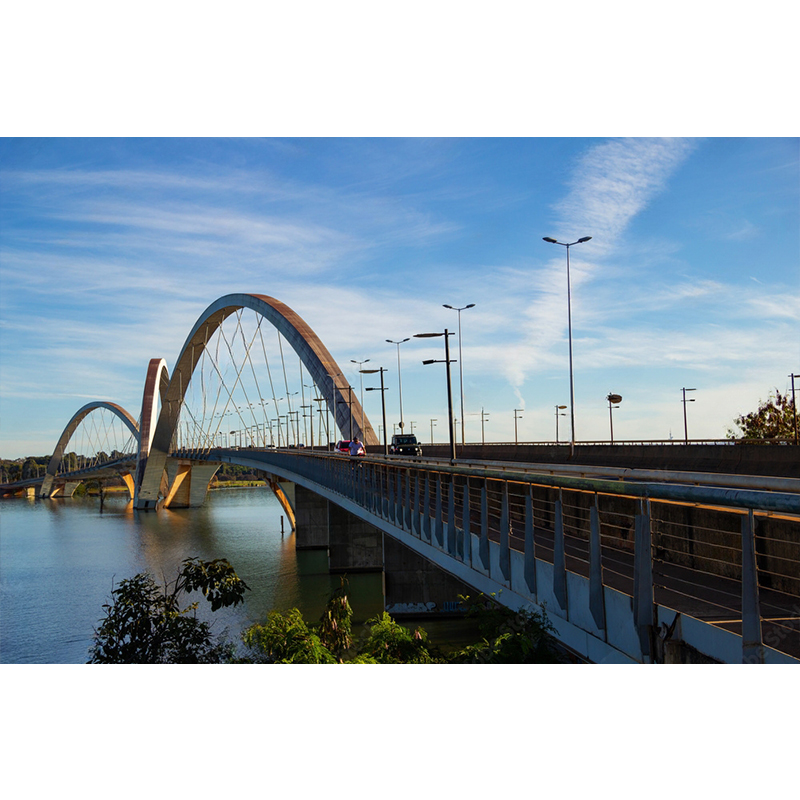The Complete Guide to Steel Structure Box Girder Bridges: Design, Advantages, and Applications

In the realm of modern infrastructure development, steel structure box girder bridges stand out as engineering marvels that combine strength, efficiency, and aesthetic appeal.
Whether used in urban overpasses, intercity expressways, or railway crossings, these bridges play a vital role in connecting regions and supporting economic development.
In this comprehensive guide, we delve deep into everything you need to know about steel structure box girder bridges —
from structural characteristics, design considerations, materials, and fabrication methods to practical applications and long-term maintenance strategies.
This blog is especially useful for civil engineers, infrastructure planners, bridge contractors, and procurement managers seeking reliable, cost-effective, and future-proof solutions.
What is a Steel Structure Box Girder Bridge?
A steel structure box girder bridge is a type of bridge that uses box-shaped, hollow girders made of structural steel as its main load-carrying elements. The girder typically consists of two horizontal flanges connected by vertical webs, forming a closed rectangular or trapezoidal section. These girders support the bridge deck and distribute loads evenly across the piers and abutments.
Unlike I-beam or truss bridges, box girders provide high torsional rigidity, making them suitable for curved alignments and bridges exposed to significant lateral forces such as wind, seismic activity, or vehicular motion.
Key Components of a Steel Box Girder Bridge
Box Girders – Usually fabricated from Q355 or Q345 high-strength structural steel. Available in single-cell or multi-cell configurations depending on design requirements.
Deck Slab – The bridge deck can be concrete (cast-in-situ or precast) or steel plates with composite action.
Bearings – Elastomeric, pot, or spherical bearings are used to transfer loads from the superstructure to the substructure.
Substructure – Composed of piers, abutments, and foundations. Designed to handle vertical and lateral loads.
Expansion Joints & Drainage – Critical for thermal movement and water management.
Protective Coatings – Hot-dip galvanizing or anti-corrosion painting ensures long service life even in coastal or humid regions.
Design Considerations
Designing a steel box girder bridge involves several engineering disciplines. Let’s break down the essential aspects:
1. Load Calculations
Dead loads (self-weight of structure)
Live loads (vehicular, pedestrian, etc.)
Environmental loads (wind, snow, seismic)
2. Span Length and Geometry
Steel box girders are ideal for medium to long spans (30m–150m).
Well-suited for curved bridges due to their torsional resistance.
3. Material Grade
Common steel grades: Q355B, Q345D, ASTM A572 Gr. 50.
Weathering steel can be used to reduce corrosion and maintenance.
4. Fabrication and Assembly
Welded box sections fabricated in factories.
Can be prefabricated and transported to site for modular assembly.
5. Standards & Codes
Compliant with AASHTO, EN1993, GB50017, or project-specific specifications.
CE marking or ISO9001 certifications enhance project eligibility.
Advantages of Steel Box Girder Bridges
✅ 1. High Torsional Stiffness
Box girders resist twisting, making them ideal for curved or skewed bridges.
✅ 2. Lightweight yet Strong
Compared to concrete girders, steel box girders offer superior strength-to-weight ratio, allowing longer spans and fewer piers.
✅ 3. Aesthetically Pleasing
Sleek profiles with concealed structural components lend a modern, minimal appearance, suitable for urban and landscape-integrated designs.
✅ 4. Faster Installation
Pre-fabrication allows rapid on-site assembly. Useful for highway flyovers and fast-track projects.
✅ 5. Durability
With proper anti-corrosion protection, steel box girder bridges can achieve a lifespan of 50+ years with minimal maintenance.
Common Applications
Steel box girder bridges are extensively used in:
Highway Overpasses: Speedy construction and aesthetic appeal make them ideal for busy urban corridors.
Railway Bridges: Vibration resistance and high axial capacity support high-speed rail.
Curved Flyovers: Their torsional rigidity makes them perfect for loop ramps and curved viaducts.
River Crossings: Long span capabilities reduce need for intermediate piers.
Industrial Zones: Heavy-load transportation corridors benefit from robust steel structures.
Construction Process Overview
Site Survey & Soil Investigation
Structural Design and Simulation
Factory Fabrication of Girders
Surface Treatment (Galvanizing/Painting)
Transportation to Site
Erection via Cranes or Launching Gantry
Deck Slab Casting and Finishing
Installation of Expansion Joints and Guardrails
Load Testing and Final Handover
Case Study: Steel Box Girder Bridge by WZH Build
At WZH Build, we recently completed a 72-meter long box girder bridge for an industrial client in Costa Rica.
Fabricated using Q355B steel with double-cell box sections, the bridge supports two-lane vehicular traffic and includes corrosion-resistant paint for coastal conditions.
Installation was completed in just 18 days with positive feedback on design accuracy and delivery speed.
Maintenance Guidelines
Annual Inspection: Check for surface damage, rust, or joint issues.
Repainting Cycle: Every 10–15 years, depending on exposure conditions.
Bearing Replacement: After ~25–30 years, especially in high traffic routes.
Drainage System Cleanups: Prevent water pooling and structural deterioration.
Why Choose WZH Build for Steel Box Girder Bridges?
20+ years of structural steel manufacturing experience
Factory-direct price with global shipping
ISO, CE, and EN certified production process
On-site support and engineering consultation available
Fast delivery timelines and project-specific customization
Steel structure box girder bridges represent a pinnacle of modern bridge engineering — offering strength, flexibility, and design freedom that traditional solutions can rarely match.
Whether your project requires spanning a busy highway or designing a sleek urban viaduct, steel box girder bridges offer a technically sound and economically feasible solution.
At WZH Build, we’re ready to support your infrastructure goals with tailor-made designs, precision manufacturing, and global delivery.





